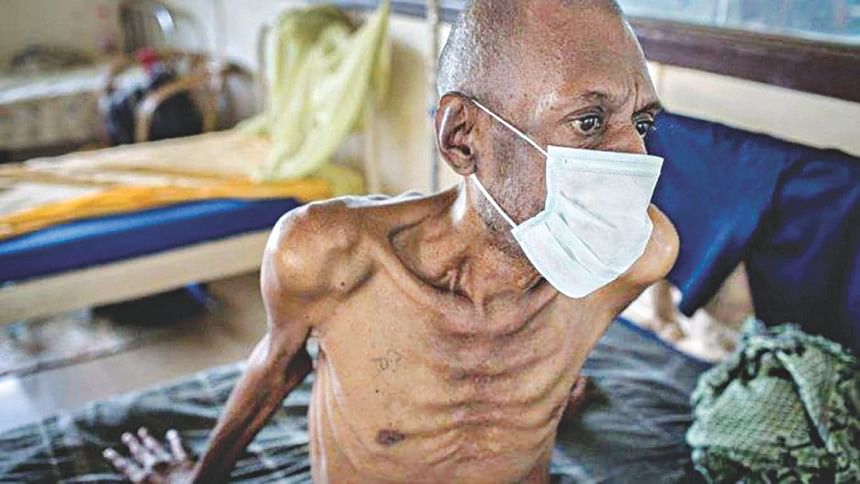Need multi-sectoral engagement

Lack of multi-sectoral engagement and human resources has been responsible for the failure of the National TB Control Programme, leaving many tuberculosis patients undetected, said health officials at an event yesterday.
Each year, as many as 15 percent of the approximately 3.6 lakh TB patients remain undetected, while many detected patients give up medications before getting cured completely, they mentioned at the launching event of the "Community, Rights and Gender Action Plan for TB" in a city hotel. At the event, civil surgeons from 64 districts participated in the discussion sessions.
Tuberculosis is a bacterial infection spread through inhaling tiny droplets from the coughs or sneezes of an infected person. It mainly affects the lungs, but it can affect any part of the body.
Dr Rampad Roy, Sirajganj district civil surgeon, said, "A TB patient often faces discrimination due to misconception. We have stressed raising awareness regarding this through a multi-sectoral engagement."
The civil surgeons also discussed other problems in dealing with TB. With fewer staffers, a civil surgeon can not concentrate on controlling TB properly. The same thing happens in the case of an upazila-level health officer, they said.
According to the officials, DGHS operates the current TB control programme countrywide through the supervision of civil surgeons and the Upazila Health Family Welfare Officers (UHFPO).
Here, workers of 24 NGOs, including Brac, have been working in the fields under the UHFPO. As soon as they learn about any prospective TB patient, they take them to the Upazila Health Complex for a free TB screening through a Gene Expert machine.
"A TB patient may be required to go through an X-Ray test. However, this examination is not free of cost. The civil surgeons have asked for necessary logistics for this at the discussion," said DGHS medical officer Dr Sayedul Bashar.
The other recommendations placed at the event include integration of TB awareness issues in school health programmes and engagement of the Islamic foundation, ministry of industries, and municipalities and the city corporation authorities.
"Undetected TB patients spread disease among others unknowingly. Unless the number of detection can be increased, the situation will turn more dangerous," said Health Minister Zahid Maleque at the concluding session. He said around 3.60 lakh people become affected with TB each year in the country. Of them, 3.07 lakh can be detected and around 44,000 TB patients die each year.

 For all latest news, follow The Daily Star's Google News channel.
For all latest news, follow The Daily Star's Google News channel. 



Comments